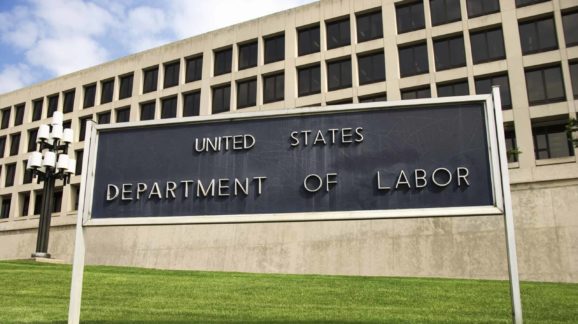The PRO Act’s Extremely Broad “Whistleblower” Provisions

Photo Credit: Getty
The Senate confirmed former Boston Mayor and ex-union official Marty Walsh as the new Labor Secretary Tuesday by a vote of 93-2. Walsh had a reputation for using his political office to reward his union friends. Should Congress also pass the radically pro-union Protecting the Right to Organize (PRO) Act, Walsh may have a new tool to punish businesses that anger unions: “whistleblower” investigations.
Buried inside the PRO Act’s text is a provision adding whistleblower protections to the Labor-Management Reporting and Disclosure Act (LMRDA), which is enforced by the Department of Labor (DOL). And the powers granted to the department under this provision are potentially vast.
The PRO Act would amend the LMRDA to say that employers cannot “terminate or in any other way discriminate against, or cause to be terminated or discriminated” for providing information to a union or law enforcement agency “relating to any violation of, or any act or omission that such employee reasonably believes to be a violation of, any provision of this Act.” The law protects any employee who “believes that he or she has been terminated or in any other way discriminated against.”
In plain English, any past or present employees who believe they have been in any way discriminated against, even if they were never threatened with firing, can file a complaint against a company and the Labor Department can then investigate. What constitutes a violation in this situation is vague and probably intentionally so.
Once an investigation is initiated, the Labor Secretary would have subpoena power for documents. Companies could be ordered to pay restitution and change their workplace practices. Investigations would require a person to file a complaint, but that wouldn’t be a huge problem for most unions. Having a person who is secretly a union member or an ally apply for a job at company with the intention of organizing the workers or making a complaint against the company is an old practice called “salting” in labor jargon.
The PRO Act has several provisions intended to force companies to change longstanding workplace practices, creating new grays areas regarding what is legal. The legislation, for example, broadens definitions of employee, supervisor, and employer in order to prevent workers from being “misclassified” as contractors not covered federal workplace laws. Exactly when a person is an employee remains open to interpretation, however. The legislation would expand the definition of “joint employer” liability, making companies responsible for workplace violations at another company if it can be said to have “indirect control” over the second company’s policies.
Notably, most of the PRO Act’s provisions amend the National Labor Relations Act (NLRA), which is enforced by the National Labor Relations Board, an independent government agency that is separate from the Department of Labor. However, the PRO Act’s whistleblower protection covers “any provision of this Act,” which means it would potentially give the DOL authority to investigate violations of the NLRA, at least in cases where the violation relates to the PRO Act.
There’s a lot of ambiguity in the PRO Act, so it could give the Secretary of Labor a lot of ways to be creative in its enforcement. Walsh has a long history of using public office to advance union interests. He became a member of Laborers International Union of North America Local 223 in 1988 and remained active in the union after he won a seat as a Massachusetts state representative in 1997. He became Local 223’s president in 2005 while still serving in the legislature, and doing things like co-chairing a Special Commission on Public Construction Reform. “[T]here was little doubt in anybody’s mind that Walsh was there primarily to aid and protect the interests of trade labor,” journalist David Bernstein noted in a 2013 Boston magazine article about Walsh’s political career.
The Senate nevertheless quickly approved Walsh by an overwhelming vote. Hopefully they’ll give the PRO Act more scrutiny.